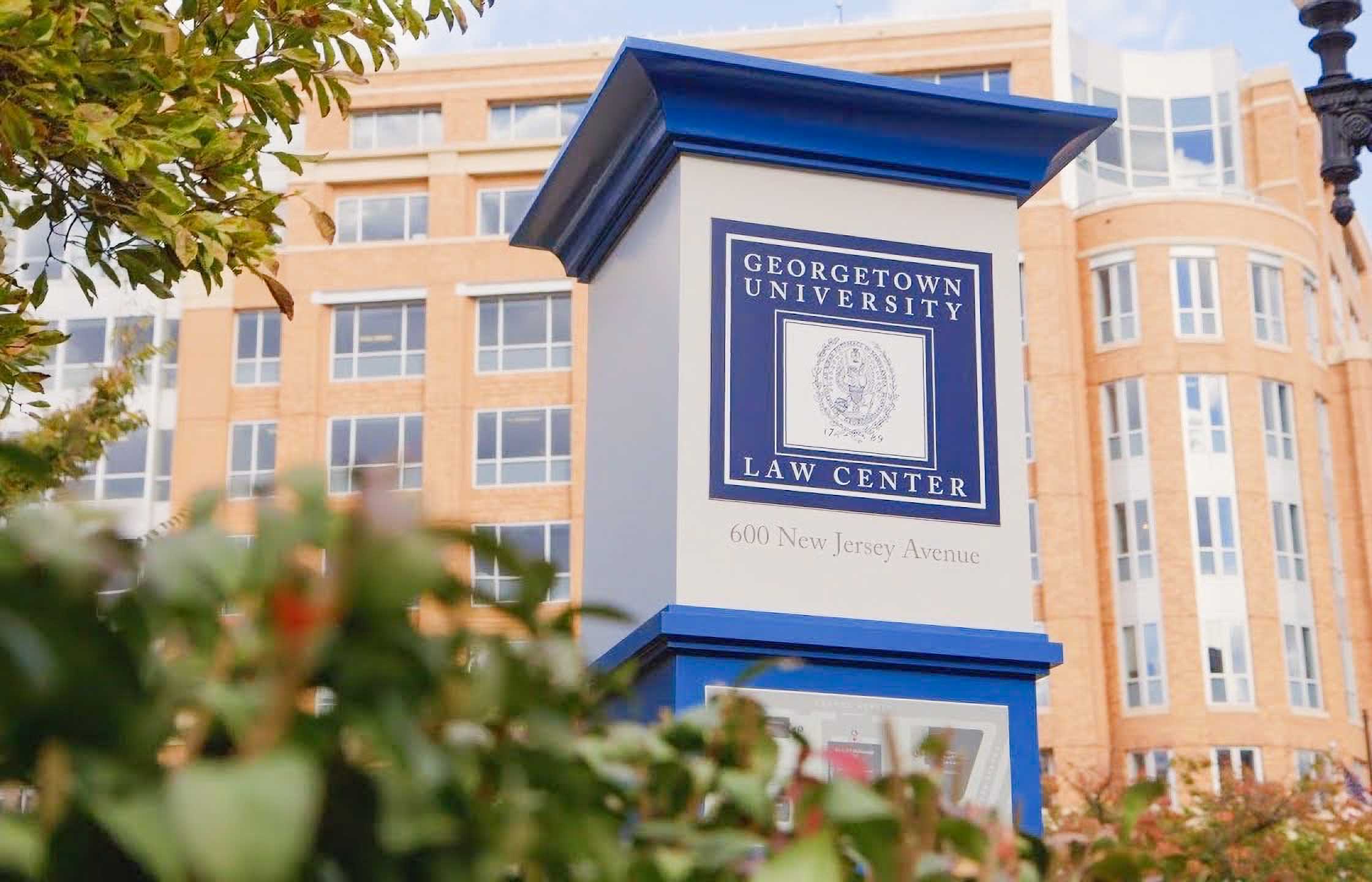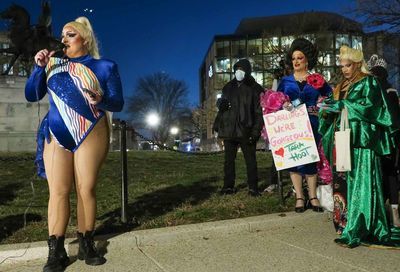Log Cabin v. United States: Ninth Circuit DADT Argument FAQ
This morning, Sept. 1, the U.S. Court of Appeals for the Ninth Circuit will hear oral arguments in the federal government’s appeal of the trial court ruling by U.S. District Court Judge Virginia Phillips finding that “Don’t Ask, Don’t Tell” is unconstitutional and that the government should be prohibited from enforcing the law.
Of course, in December 2010, Congress passed and President Obama signed the Don’t Ask, Don’t Tell Repeal Act. In July, Obama, Defense Secretary Leon Panetta and Joint Chiefs of Staff Chairman Adm. Mike Mullen certified, as required under the act, that the military was prepared to implement repeal, so repeal will take effect on Sept. 20.
So, why, then is the appeal of the Log Cabin Republicans v. United States being heard today, what will it mean and why does it matter? Here’s the FAQ:
What happened?
Phillips, after a lengthy trial, decided on Sept. 10, 2010, that DADT was unconstitutional for multiple reasons, including a “violation of the substantive due process rights guaranteed under the Fifth Amendment.” To reach that conclusion, after reviewing the evidence presented, she wrote:
In order to justify the encroachment on these rights [by implementing DADT], Defendants faced the burden at trial of showing the Don’t Ask, Don’t Tell Act was necessary to significantly further the Government’s important interests in military readiness and unit cohesion. Defendants failed to meet that burden.
Phillips also found that DADT violated the First Amendment because DADT’s requirement that a servicemember who “has stated that he or she is a homosexual or bisexual, or words to that effect” be discharged is a content-based speech regulation, which is disfavored under the First Amendment. Phillips wrote:
The Act does not prohibit servicemembers from discussing their sexuality in general, nor does it prohibit all servicemembers from disclosing their sexual orientation. Heterosexual members are free to state their sexual orientation, “or words to that effect,” while gay and lesbian members of the military are not. Thus, on its face, the Act discriminates based on the content of the speech being regulated.
Then, a month later, on Oct. 12, 2010, Phillips issued a declaratory judgment that 10 U.S.C. 654 — the DADT law — was unconstitutional and that, accordingly, the U.S. government would be “permanently enjoin[ed] from enforcing or applying the ‘Don’t Ask, Don’t Tell’ Act and implementing regulations, against any person under their jurisdiction or command.”
That order halted the enforcement of DADT until the Ninth Circuit put in place a stay — or hold — on Phillips’s order while the appellate could consider the government’s appeal.
 What is happening today?
What is happening today?
A three-judge panel of the Ninth Circuit will hear arguments from the government and LCR’s lead attorney, White & Case’s Dan Woods, about the case. The judges are Arthur Alarcon, a Carter appointee; Diarmuid O’Scannlain, a Reagan appointee; and Barry Silverman, a Clinton appointee. They are not the same judges involved in the earlier Ninth Circuit decision temporarily lifting and then partially reinstating the court’s stay of Phillips’s judgment. (Incidentally, they also are not the three judges considering the Proposition 8 appeal.)
Judges Alarcon, O’Scannlain and Silverman are slated to hear seven cases beginning at 9 a.m. Pacific Time in Courtroom 1 at the Richard H Chambers U.S. Court of Appeals Building located in Pasadena, Calif. LCR v. U.S. is the fourth scheduled case.
What about the Don’t Ask, Don’t Tell Repeal Act?
The government, since the passage of the repeal act, and especially since the Department of Justice announced on Feb. 23 that it believes sexual orientation classifications are to be subjected to heightened scrutiny, has resisted getting into much defense of the constitutionality of DADT itself.
On Feb. 25, DOJ argued that the question on appeal was “[w]hether Congress lacked the constitutional authority to establish an orderly process for repeal of § 654, while keeping the former statute in place and maintaining the status quo during the transition in policy.”
DOJ has been arguing that the DADT Repeal Act changed the law struck down by Phillips completely, so much so that the ruling cannot stand. On July 15, DOJ lawyers argued in a filing with the court that “§ 654 remains in force by operation of § 2(c) of the Repeal Act, which provides that § 654 ‘shall remain in effect until such time that all of the requirements and certifications required by’ the Repeal Act ‘are met.'” Because of this provision in the repeal act, the government argues, “§ 654 is now a transitional provision that remains in force only until the Executive Branch completes the repeal process.”
LCR has strongly criticized the government’s argument that the DADT Repeal Act, by providing a path for its repeal, “significant[ly] and substantive[ly] change[d]” the law and that it is, therefore, “a different legal provision from the one the district court examined at trial.” To that, Woods responded for LCR on July 21, writing, “If the government’s argument were accepted, Congress would be free to enact any unconstitutional law it pleased, so long as it provided that the law would expire at some point in the future. The Constitution does not permit such a thing.”
Does repeal make the lawsuit moot?
Mootness is a legal term that prevents courts from rendering advisory opinions because, under the Constitution, federal courts can only hear actual “cases” or “controversies.”
Defense Department general counsel Jeh Johnson has defended the government’s argument that repeal of DADT renders the LCR challenge moot, saying, “Overall, we take that view that once certification and repeal happens, that lawsuit becomes moot.”
Later, on the day it was announced that the DADT Repeal Act-required certification had been made, he added, “That lawsuit is about the constitutionality of 10 U.S.C. 654. … 10 U.S.C. 654 is being repealed. … In 60 days, it will be off the books. So, that’s why we say the lawsuit should be dismissed because the issue is moot.”
LCR notes, however, that U.S. District Court Judge Virginia Phillips’s judgment in the case included more than just the injunction on enforcement of DADT but also the declaration that DADT is unconstitutional.
Why does it matter whether the case is moot or not?
“Because individuals who were discharged under DADT during the 17 years that statute has been in effect continue to this day to sustain identifiable collateral consequences from their unconstitutional discharges,” LCR’s Woods wrote in a filing to the court, “a substantial controversy continues to exist between the parties that will not be removed by repeal and the case will not then be moot.”
In response, Johnson has said that other cases could be and have been filed to address those issues. The government has argued that because the case, in its view, is moot following repeal the case should be dismissed and Judge Phillips’s ruling vacated.
In a news release issued in advance of today’s arguments, Woods responded by saying, “The government is trying to remove the legal precedent established in our case so that anyone claiming back pay, reinstatement or a change in discharge status because he or she was discharged under an unconstitutional law would be unable to take advantage of the precedent we set.”
Support Metro Weekly’s Journalism
These are challenging times for news organizations. And yet it’s crucial we stay active and provide vital resources and information to both our local readers and the world. So won’t you please take a moment and consider supporting Metro Weekly with a membership? For as little as $5 a month, you can help ensure Metro Weekly magazine and MetroWeekly.com remain free, viable resources as we provide the best, most diverse, culturally-resonant LGBTQ coverage in both the D.C. region and around the world. Memberships come with exclusive perks and discounts, your own personal digital delivery of each week’s magazine (and an archive), access to our Member's Lounge when it launches this fall, and exclusive members-only items like Metro Weekly Membership Mugs and Tote Bags! Check out all our membership levels here and please join us today!
























